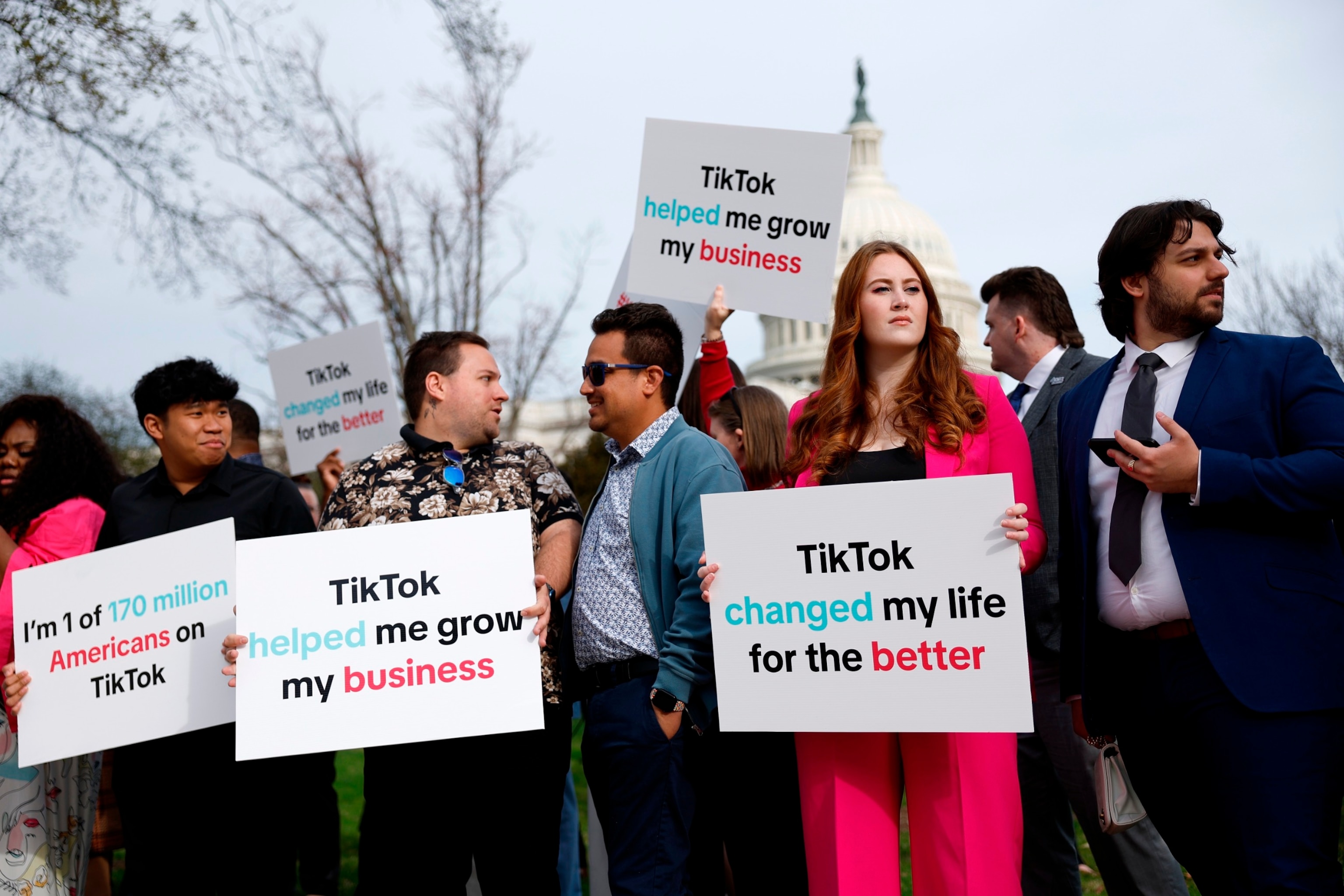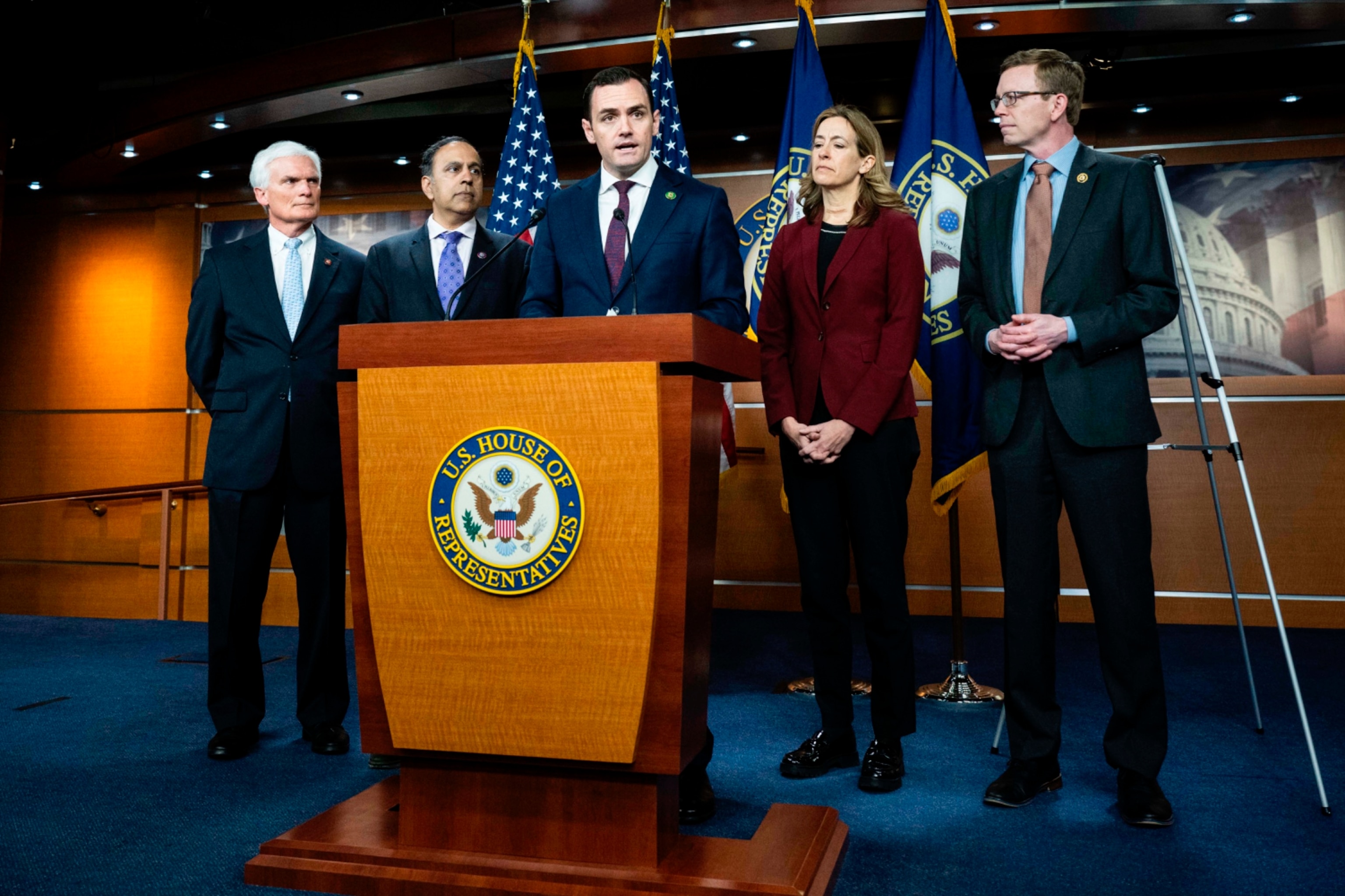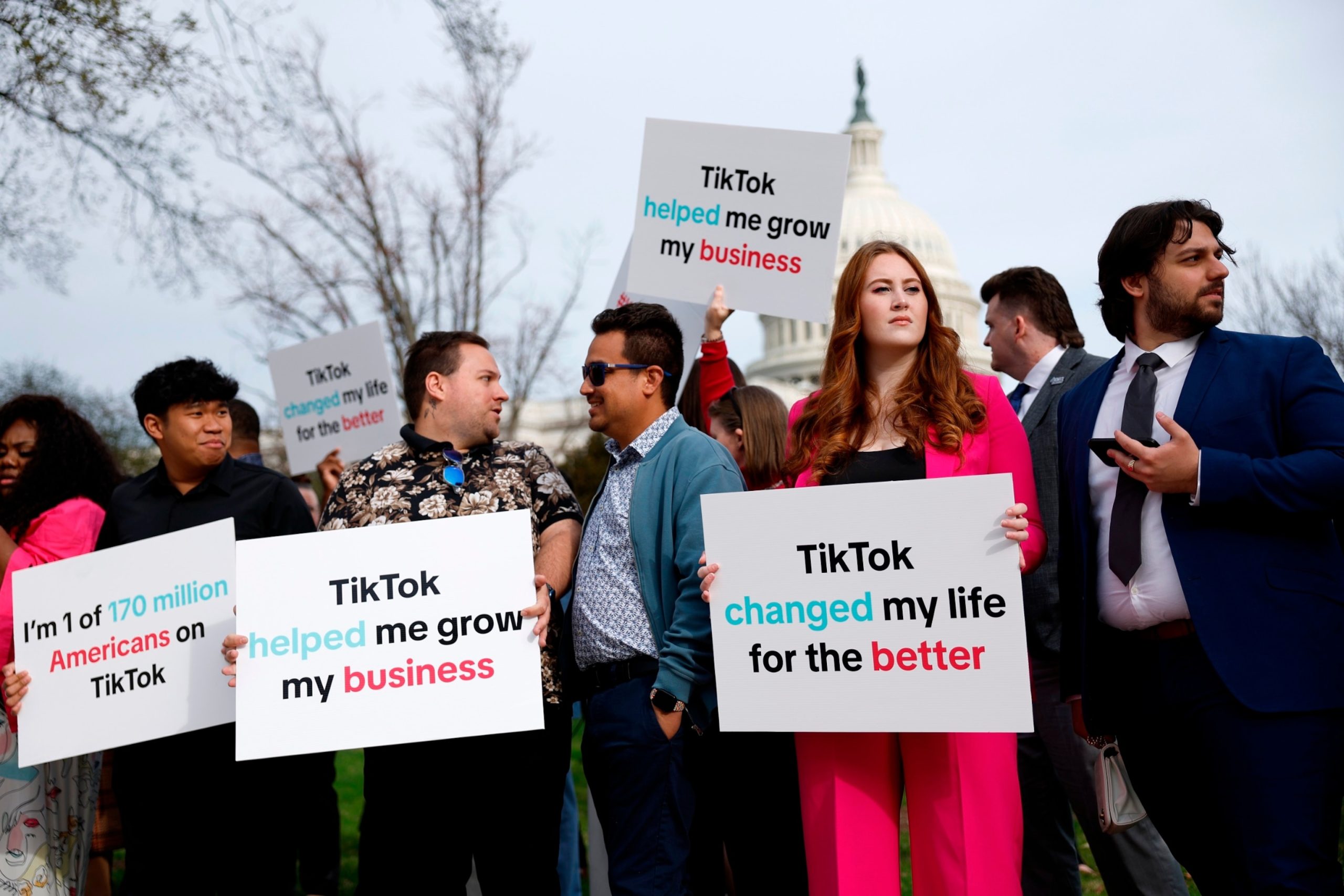The House on Wednesday passed bipartisan legislation to force TikTok’s Chinese parent company to sell the wildly popular social media platform or face a ban in the U.S.
If enacted, the bill would give ByteDance six months to divest from TikTok before app stores would start prohibiting access.
The final vote was 352-65, surpassing the two-thirds majority threshold needed to pass the legislation under a suspension of the rules.

Participants hold signs in support of TikTok outside the U.S. Capitol Building on March 13, 2024 in Washington, DC.
Anna Moneymaker/Getty Images
It’s unclear if it will be welcomed by the same level of support in the Senate, where Majority Leader Chuck Schumer hasn’t committed to putting it on the floor. Though President Joe Biden has said if it lands on his desk, he will sign it.
The bill passed despite an 11th-hour lobbying push from TikTok’s supporters and some opposition from former President Donald Trump, who reversed his position on the app.
Ahead of the vote, the lead Republican and Democrat on the effort told ABC News that the potential disinformation and data “risks” the app poses are too ominous to ignore.
“We’ve had instances in the past where TikTok has used the app to spy on journalists, for example, but the broader risk in my mind is having a foreign adversary, in this case, the Chinese Communist Party, control what is increasingly becoming the dominant news platform in America,” Rep. Mike Gallagher, R-Wisc., said.
“The risk in terms of propaganda, the risk to influence our election are just too severe. That’s not just me talking. That’s every single major national security official from the Biden administration. That’s why we’re seeking a divestiture to guard against those two risks.”
Americans using TikTok “should use it cautiously,” Rep. Raja Krishnamoorthi, D-Ill., agreed.
“I don’t have it on my phone. It’s banned from government devices for a reason. But you know, I think you should use it cautiously. My own children don’t have it on their devices, thankfully, and all parents should act accordingly,” he said.

Representative Mike Gallagher (R-WI) speaking about the Protecting Americans from Foreign Adversary Controlled Applications Act (i.e. TikTok) at the U.S. Capitol, March 6, 2024, Washington D.C.
Michael Brochstein/ZUMAPRESS.com
In an hour of debate on the legislation, many lawmakers contended their primary goal was to separate the app from its Chinese parent company for national security reasons, not to ban a very popular app used by more than 170 million Americans.
“This is not an attempt to ban TikTok. It’s an attempt to make TikTok better,” said former House Speaker Nancy Pelosi, a California Democrat, as she highlighted the positive educational and business values of the app. “Tic-Tac-Toe. A winner. A winner.”
But others in the chamber voiced concern the bill is an infringement on the First Amendment and free speech.
“Americans have the right to view information,” said Rep. Thomas Massie, R-Ky. “We don’t need the government to protect us from information. Some of us just don’t want the president picking which apps we can put on our phones or which websites we can visit.”
This is a developing story. Please check back for updates.
The House of Representatives recently approved a bill that would ban the popular social media app TikTok unless its Chinese owners sell the app to a US-based company. The bill, known as the “No TikTok for Government Officials Act,” was passed with overwhelming bipartisan support, signaling growing concerns about the security and privacy risks associated with the app.
TikTok, which is owned by the Chinese company ByteDance, has come under scrutiny in recent years for its ties to the Chinese government and its data collection practices. Lawmakers and security experts have raised concerns that the app could be used to collect sensitive information on American users and potentially be used for espionage or other malicious purposes.
The bill, if signed into law, would require federal employees and contractors to delete TikTok from their devices and prohibit them from using the app on government-issued devices. It would also ban federal agencies from conducting business with companies that have ties to the Chinese government, including ByteDance.
Supporters of the bill argue that it is necessary to protect national security and prevent foreign adversaries from gaining access to sensitive information. They point to recent incidents where TikTok was found to be collecting data on users without their consent and sharing it with third parties.
Opponents of the bill, however, argue that it unfairly targets TikTok and could set a dangerous precedent for banning other apps based on their ownership. They also argue that banning TikTok could have negative economic consequences, as the app has become a popular platform for businesses and influencers to reach a large audience.
Despite these concerns, the bill has gained widespread support in Congress and is expected to be signed into law in the coming weeks. In the meantime, TikTok users are advised to be cautious about the information they share on the app and consider alternative platforms that prioritize user privacy and security.



